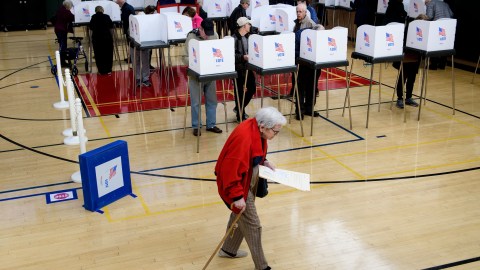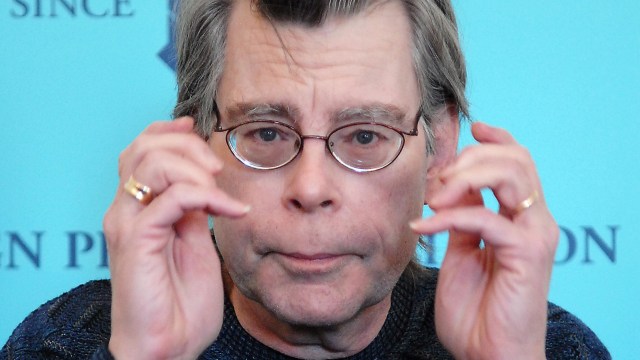What would happen if everyone voted? Researchers suggest big changes

(BRENDAN SMIALOWSKI/AFP/Getty Images)
- Americans vote at a lower rate than the citizens of other Western Democracies, with measurable effects on our policy outcomes.
- Several studies show that policies supported by voters are enacted at a higher rate than ones supported by non-voters; despite popular misconceptions.
- Learning that voting could have noticable effects may come as a pleasant surprise to the more cynical of non-voters.
Voter turnout in the United States is pretty low compared to other industrialized countries. While the 2016 US presidential election saw a 56% turnout rate, the 2017 general election in the UK had a 69% turnout rate. Iceland and New Zealand had turnout rates of nearly 90% in recent elections.
While various explanations of why rates are so low and proposals of how to improve them have been floating around for years, rarely do we ask what would happen if the voter turnout rates here reached the levels of our more engaged counterparts. Luckily, some studies are here to help.
How to build an authoritarian regime — and how to stop one | Timothy Snyderwww.youtube.com
Older research into American elections concluded that the demographics of voters and non-voters were similar and that higher voter turnout would have no noticeable effects as a result. However, more modern research has debunked this notion.
Given the demographics of who votes and who doesn’t, the MIT Election Data and Science Lab concluded that “voters in national elections are more likely to be Republican and to oppose redistributive social policies than non-voters. Differences between voters and non-voters on other issues such as foreign policy are much less pronounced.”
If everybody voted, we would likely see different policies than we see today. A report by Sean McElwee demonstrates this rather clearly. In it, we see that support for various policies enacted by the US government is higher among voters than the population overall. If voter turnout increased and everybody voted for the candidate that best reflected their views, the results could be quite pronounced.
“Never Again?” How fascism hijacks democracies over and over | Rob Riemenwww.youtube.com
Professors Brian Newman and John Griffin point out that voters are better represented than non-voters. While this is a truism, they also found that the policies supported by the people who vote are carried out rather frequently. The cynical belief that your vote doesn’t matter and politicians won’t listen to you is mistaken. Other studies agree with this finding.
Richard Dawkins: No, Not All Opinions Are Equal—Elitism, Lies, and the Limits of Democracywww.youtube.com
The idea that political engagement is good for the individual is a crucial part of the philosophy of John Stuart Mill, an English ethical and political philosopher. In his book Considerations on Representative Government, he argues that civic engagement in a democracy is capable of encouraging personal development and is all but required for a high functioning society.
He first argues that a society without political engagement will be one with degraded people, even under an ideal dictatorship:
One man of superhuman mental activity managing the entire affairs of a mentally passive people. Their passivity is implied in the very idea of absolute power. The nation as a whole, and every individual composing it, are without any potential voice in their own destiny. They exercise no will in respect to their collective interests. All is decided for them by a will not their own, which it is legally a crime for them to disobey. What sort of human beings can be formed under such a regimen? What development can either their thinking or their active faculties attain under it?
He then argues that political engagement, even of the most mundane kind, is of use in the development of the individual. It requires us to think about big issues, consider other viewpoints, and exercise mental faculties that might otherwise go unused. He suggests that if everybody was involved, everybody would be improved.
Many Americans tend to avoid voting. While the question of why is an important one, we must also remember to ask what would happen if we did bother to vote. If the thinkers mentioned above are correct, we would see very different policy outcomes and better people as a result of greater democratic participation.
If you are suddenly inspired to go and vote, everything you need can be found here.





